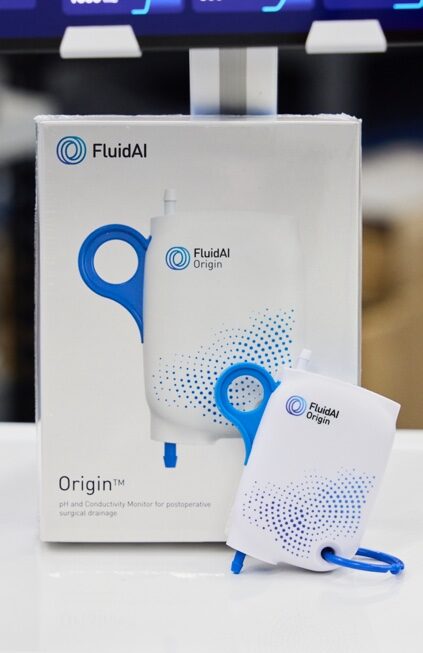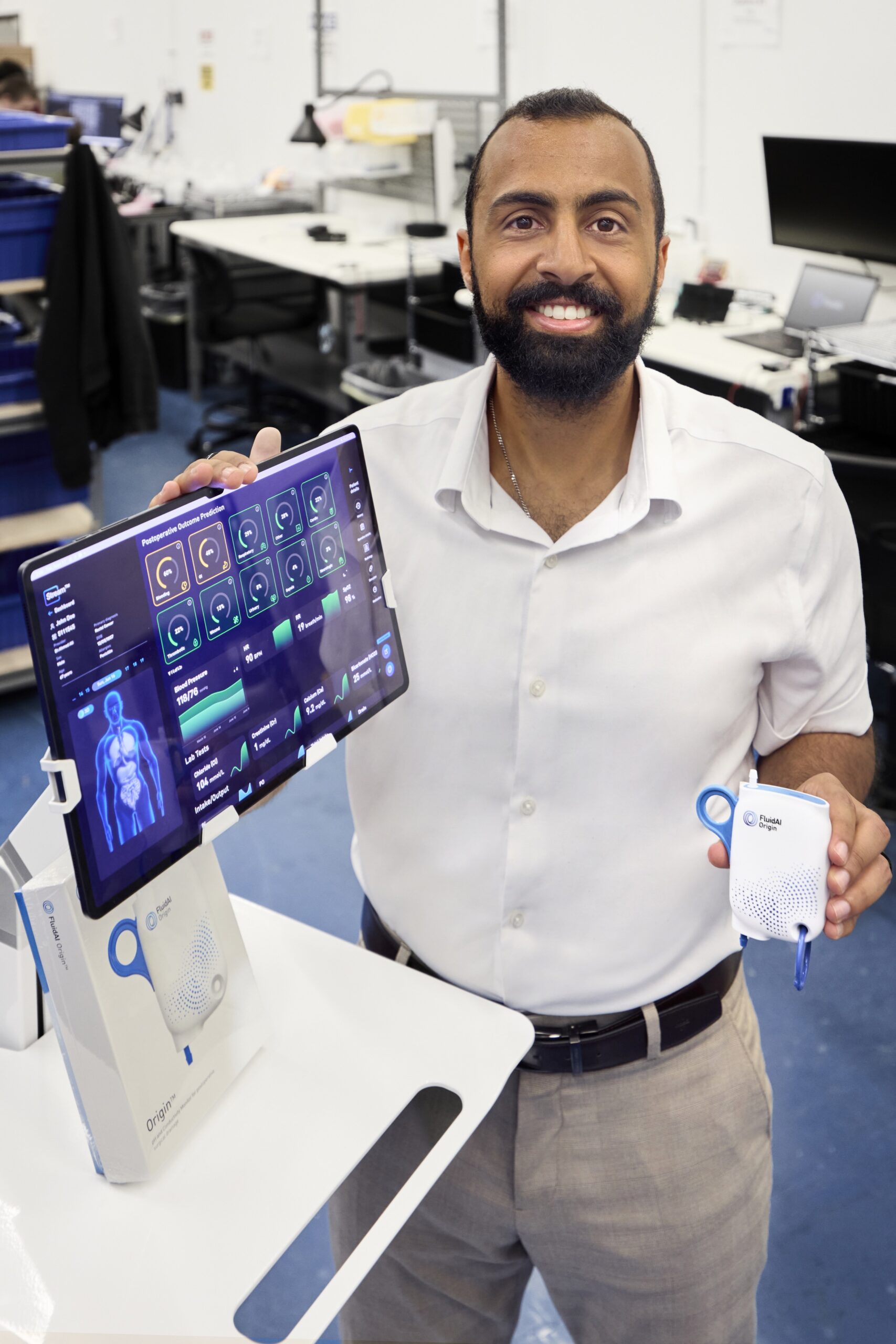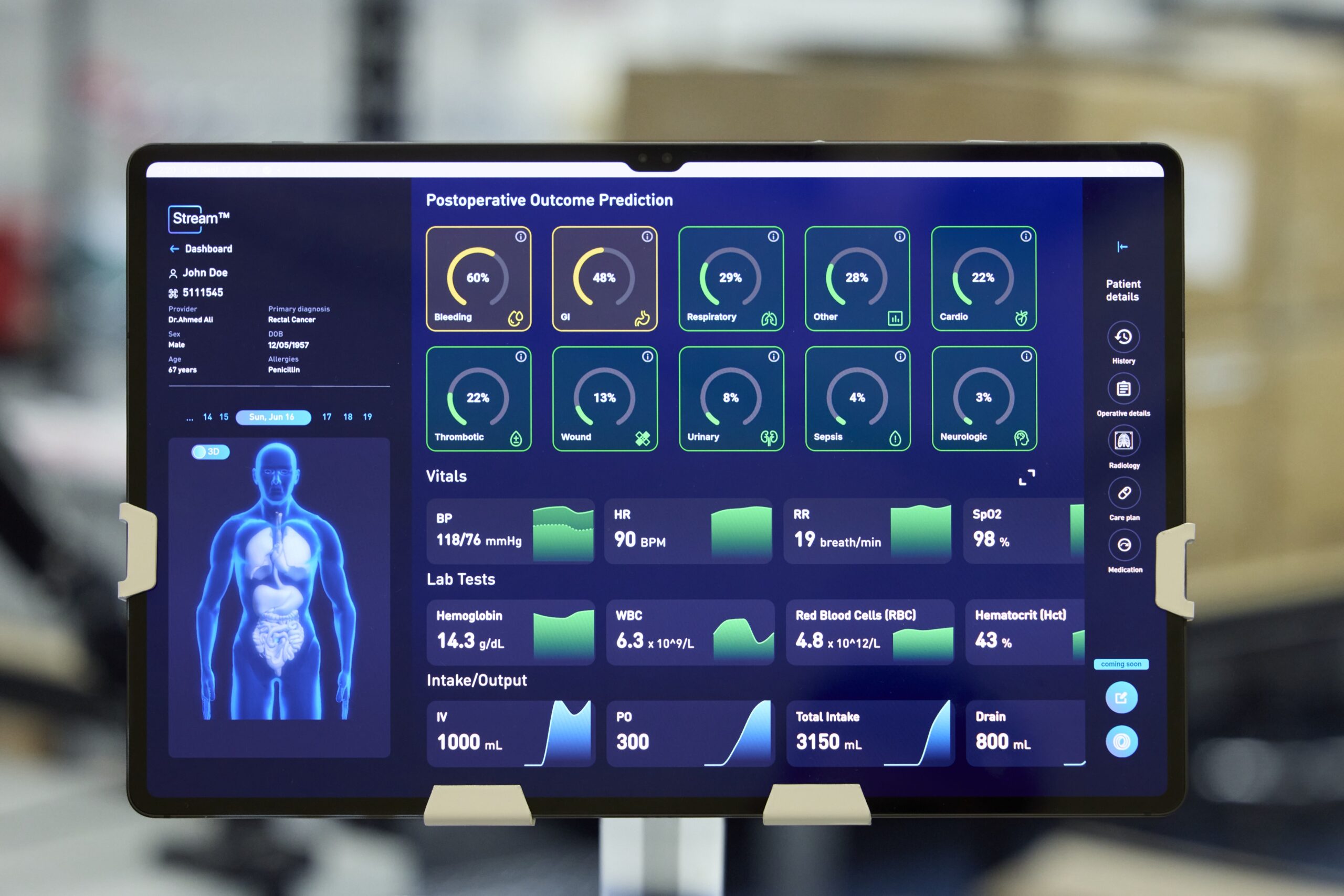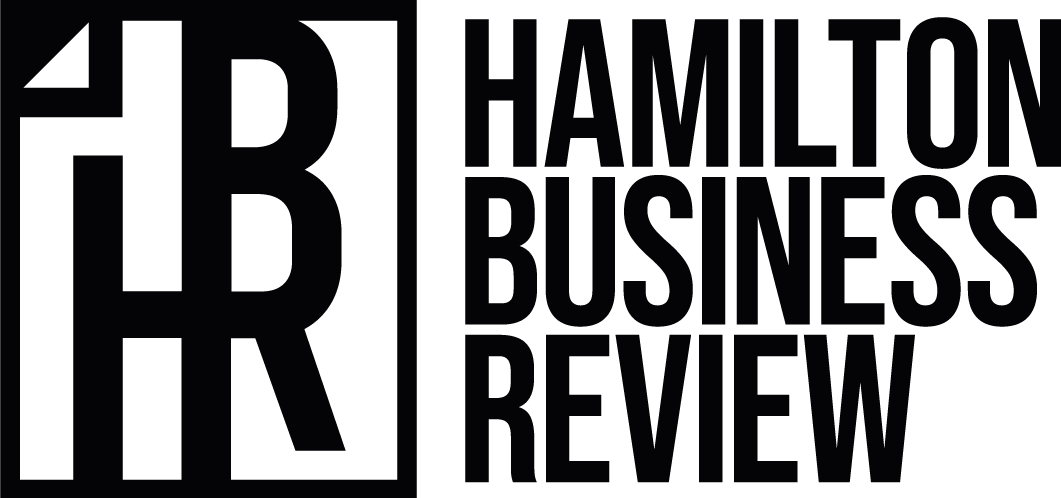The Anatomy of a success story

Written by Ian VanDuzer
Rising life sciences star FluidAI used Hamilton infrastructure to slingshot their way towards commercialization.
In the life sciences space, the road from innovative idea to successful technology is a long road fraught with roadblocks and obstacles: from acquiring regulatory approvals, to establishing supply lines, to manufacturing, to conducting clinical trials with healthcare systems, it can be difficult for newcomers to any life sciences ecosystem to establish themselves.
And that’s all if the new technology actually works.
With such a winding path, any success deserves to be celebrated. Especially successes like Hamilton-area startup FluidAI, who has recently begun manufacturing their Origin™ device and Stream Platform™ after securing regulatory wins in Canada, Saudi Arabia, and the Gulf Region.


Their path to success was simple: identify a core need, iterate on your ideas, and execute on your findings.
First, the core need: one of the many complications in recovering from bowel and intestinal surgeries are “anastomotic leaks.” Fluid leaking from the intestines to the rest of the abdominal area can easily cause infections if left untreated. These leaks also occur in around 10% of all operations, and can take up to a week before they are noticed.
FluidAI was formed in 2019 to address this issue specifically and bring a medical device to market that would help empower medical professionals to identify anastomotic leaks earlier, resulting in better postoperative recoveries. “We had an original idea for a sensor that would be left in the patient’s body post-op,” explains FluidAI COO and Co-Founder Amr Abdelgawad. “Being in the operational site meant we could more quickly identify leaks as they happen.
Even though FluidAI was formed out of the University of Waterloo – both Abdelgawad and CEO Youssef Helwa are Waterloo alumni – they chose to focus early development in Hamilton because of the Synapse Consortium, a network of life sciences accelerators, funding programs, and Hamilton institutions.
With a basic design and plan in place, the FluidAI team began running their idea past industry professionals. Benefitting from Hamilton’s robust life sciences infrastructure and presence of working hospitals, FluidAI received encouraging feedback and then entered the Synapse Pitch Competition in 2019. Pitching key stakeholders in Hamilton Health Sciences, Innovation Factory, McMaster University, and St. Joseph’s Healthcare Hamilton, FluidAI was able to receive direct and critical feedback from healthcare professionals.
“We quickly learned that surgeons and doctors weren’t enthusiastic about leaving a device in the body post-op,” says Abdelgawad. “That complicated the post-op recovery, not making it easier.”
Still, the competition judges found enough merit in FluidAI’s design to award them the second-place prize of $15,000 in non-dilutive funding. More importantly, the success at the competition opened doors for FluidAI with Hamilton’s life sciences institutions, which enabled the company to start iterating on their core concept.
Eventually, core conversations and further iterations resulted in the Origin™ device. The new device remains outside of the patient’s body, using external sensors to monitor fluid levels in postoperative patients. Information is analyzed and displayed by the Stream Platform™, which leverages AI to identify anastomotic leaks 80% faster than current available methods.
A critical part of that iterative process for any medical device is clinical trials. Safely testing the device on real patients in a controlled environment is critical to obtaining the data and results companies need to successfully sell hospitals and healthcare professionals on their product, Abdelgawad says.
Again, FluidAI was able to utilize their relationships with Hamilton stakeholders to conduct a 170 person clinical trial through Hamilton Health Sciences. They applied for a SOPHIE (Southern Ontario Pharmaceutical and Health Innovation Ecosystem) grant that assisted in the trials process. “Clinical trials are expensive. For a startup, you need support to go through them – both in terms of dollars, and the ecosystem in general,” Abdelgawad explains. “SOPHIE gave us access to the right clinicians, the right research culture, and the right supports. It really lined everything up for us to get to this stage of commercialization.”

The results of the trial were a success: FluidAI found that Stream™ Platform, empowered by Origin™, was able to identify anastomotic leaks much faster than traditional monitoring methods, cutting down recovery times by as much as 13 days.
From there, it was a matter of establishing manufacturing operations and getting approvals to sell Origin™ in Canada and overseas. FluidAI received Health Canada approval in 2022, and then achieved a regulatory win in Saudi Arabia. They also acquired a competitor company in the United States, priming them for American expansion.
With these approvals secured, FluidAI raised $25 million in investor funding, applied for further Government of Ontario grants, and began manufacturing their devices. “We’re in a position where we’re doing a limited market release in the Gulf region and Canada,” shares Abdelgawad. “And all of that wouldn’t have been possible just with our team alone.”
Having finally and successfully made it to market, FluidAI is looking to continue its upward trajectory. Now with over 40 employees, this made-in-Hamilton success story has relocated to Kitchener, keeping it well within reach of the resources and ecosystem that it needed for start-up and commercialization.
See what's possible. Bring your discovery to market.
Related Articles
Related
St. Joe’s prepares to launch a groundbreaking psychedelic medical research centre
"The Centre for Health Innovation and Research in Psychedelics at St. Joe’s is dedicated to advancing the science of medicinal psychedelics. With demonstrated effects on serotonin pathways, neuroplasticity, anti-inflammatory effects and functional connectivity in the...
Alectra Powers Communities Beyond Our Borders
"Alectra Utilities has been honored by the Ukrainian World Congress (UWC) for its generous contribution toward restoring power to Ukrainian schools devastated by Russia’s relentless missile and drone strikes. During a presentation to Alectra’s Board of Directors on...
Hamilton Modular Builder is Helping Address the Housing Crisis Head-on
"The city has chosen a Hamilton-area modular home company to provide the 60 micro shelters that will form a temporary new neighbourhood in southeast London for people with nowhere else to live. Fero International Inc., based in Stoney Creek, builds the modular homes...
